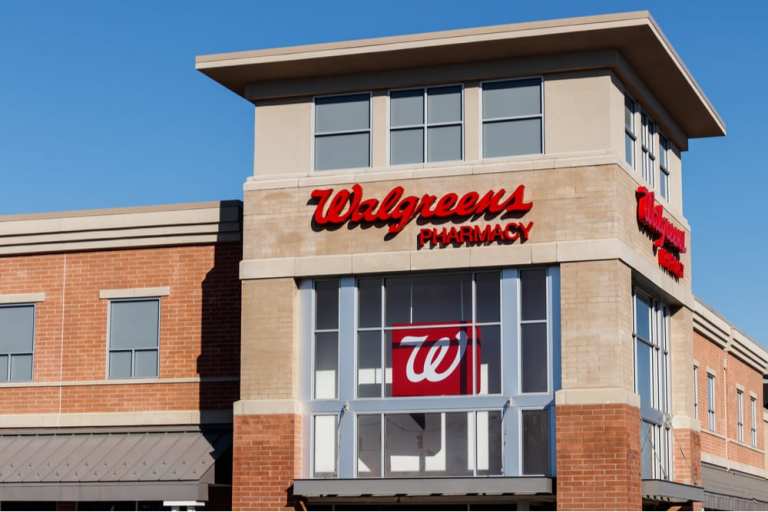Retail Pulse: Walgreens To Test Drone Deliveries; Walmart To Relaunch Scoop

Retailers are testing drone delivery to grow their omnichannel offerings and provide “store to door” on-demand service to their customers. Walgreens, in one case, plans to pilot drone deliveries in Christiansburg, Virginia starting in October by partnering with Wing, a member of the Alphabet family of companies.
Walgreens Boots Alliance, Inc. Chief Innovation Officer Vish Sankaran said in an announcement for the pilot, “With a customer-led focus, we continue to create differentiated shopping experiences that provide the products and services consumers need wherever, whenever and however they may want them. This is the kind of omnichannel partnership and offering that can redefine convenience for our customers and communities – delivering items to homes in minutes, not hours or days.”
With the Christiansburg pilot, shoppers can select individual items or a pre-built pack in categories spanning baby, allergy, cough/cold, pain, first aid and kids’ snacks. However, the delivery of prescriptions is not available. The idea is to serve use cases in which customers want health and wellness (or food/beverage) items immediately, but it’s not ideal for them to leave home. They might be sick and not want to spread germs or may be caring for a sick child, for instance.
Christiansburg was chosen as the test market because Wing has been working with Virginia Tech in nearby Blacksburg to pilot the drone deliveries. (That effort is part of the U.S. Department of Transportation’s Integration Pilot Program.) The company said it is “in a unique position to capitalize on the convenience of drone delivery if and when it should expand.” Roughly 78 percent of the U.S. population resides within five miles of a Walgreens-owned store.
Beyond Walgreens, Uber is preparing to experiment with drones for Uber Eats. The company finished the first stage of testing in conjunction with McDonald’s at San Diego State University, per reports in June. And in another case, Amazon previously announced it will offer a drone delivery service within months. The announcement was made by Worldwide Consumer CEO Jeff Wilke on June 5 at the eCommerce retailer’s “re:MARS” conference in Las Vegas.
From Amazon to Uber and Walgreens, retailers and eCommerce platforms are tapping into drones to expand their omnichannel offerings by providing consumers with easy access to their favorite products.
In Other Brick-and-Mortar News
Walmart has obtained the rights to the Scoop name and is bringing back the brand as a larger fashion destination. The retailer is relaunching the Scoop NYC brand in some of its brick-and-mortar locations and on its eCommerce site. Walmart will sell more than 100 pieces in inclusive sizes, with prices running from $15 for a graphic tee to $65 for a coat.
Denise Incandela, the head of Walmart’s fashion business, said in a statement, “We’ve been focused on establishing Walmart as a destination for fashion – a place where our customers can discover stylish items that are accessible. Adding Scoop to our portfolio makes it that much easier for our customers to look and feel their best.” The pieces will use materials such as faux fur and vegan leather.
And Tru Kids, the new owner of the Toys R Us brand, is teaming with Candytopia to bring in shoppers with new experiences. The companies will make Toys R Us Adventure, which has been described as “an immersive wonderland that celebrates the whimsical, silly and fun of toys.”
Toys R Us Adventure will have over 12 interactive playrooms with installations that spotlight the Toys R Us mascot, Geoffrey the Giraffe. The play areas will open toward the end of October at Buckhead’s Lenox Marketplace in Atlanta and on North Michigan Avenue in Chicago. The exhibits will be open through the holidays.
Tru Kids CEO Richard Barry said in a statement, according to reports, “We believe this live experience coupled with our new experiential retail stores will attract families from around the world and create a unique opportunity to rediscover the magic of this beloved family brand.”
In other news, Starbucks has announced the release of an actual pen consumers can use to pay at the register in Japan. The pen, which writes in a coffee-brown ink, is said to have a sleek appearance. It is NFC-enabled and connects directly to consumers’ digital wallets. The device runs on FeliCa technology, which is very popular in Japan and is also used to power Starbucks’ card system.
To keep tabs on the latest retail trends, check next week’s Retail Pulse.